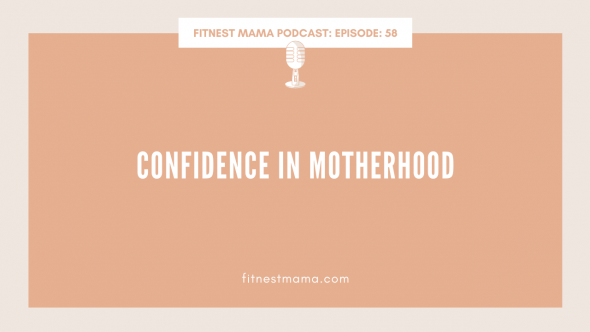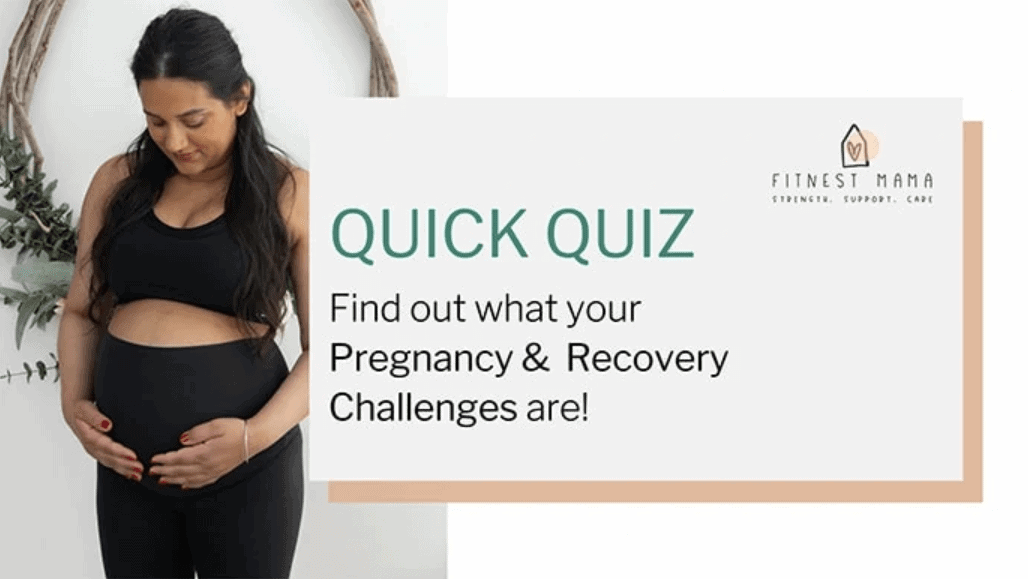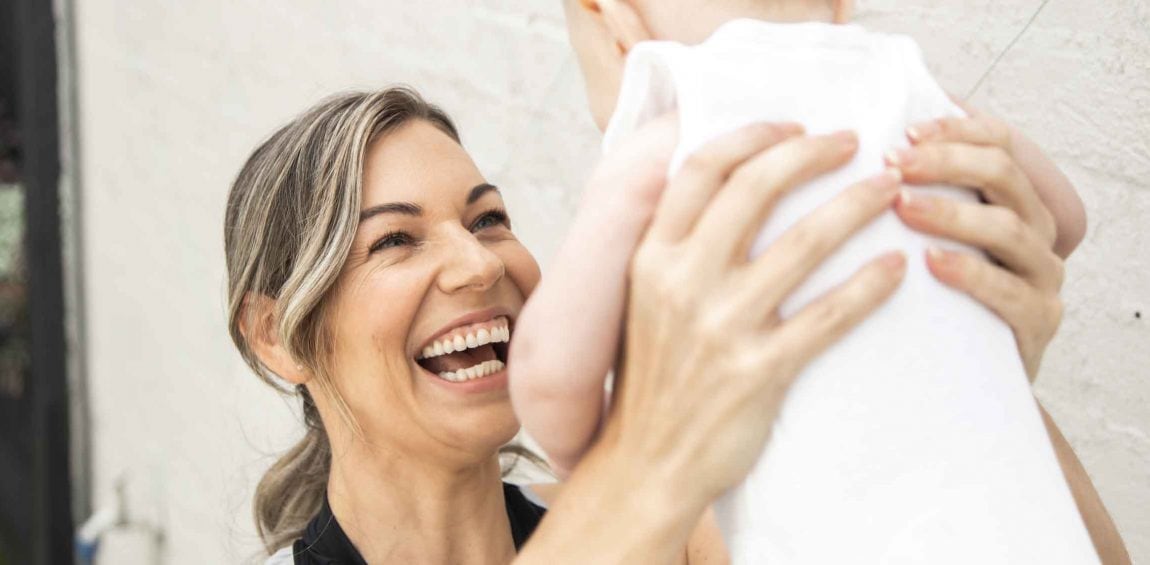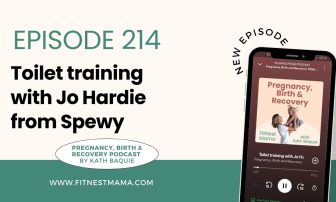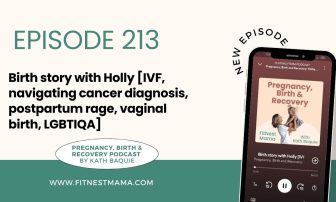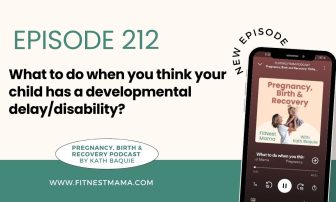Please note that this transcription was completed with computer voice recognition software. Quite often unanticipated grammatical, syntax, homophones, and other interpretive errors are inadvertently transcribed by the computer software. Please disregard these errors. Please excuse any errors that have escaped final proofreading.
If you are pregnant or you’ve recently had a baby, this podcast is for you. I am your host Kath Baquie. A physiotherapist working in women’s health and mum of three. Join me each week as we dive into all things pregnancy care, childbirth, and postnatal recovery, helping you have a wonderful pregnancy and afterbirth experience. And don’t forget to hit subscribe so you don’t miss any episodes.
Well, hello there! It’s so lovely having you tune into this solo episode of the FitNest Mama Podcast, where I will be discussing Confidence in Motherhood. And I’ll be discussing this from a physical perspective in terms of how our physical recovery after birth can really help to shape our motherhood experience.
If we haven’t met before, my name is Katherine Buquie. I’m a mum of three young girls, a physio for women and I have an online community, FitNest Mama, which helps to provide pregnant and new mothers with exercises support and resources they need to feel good from the inside out as they prepare for and recover from childbirth. And I would love to invite you to join FitNest Mama. So if you have found you’re not exercising as much as you’d like to during pregnancy or post pregnancy or you’ve lost the motivation to exercise or you’re perhaps not sure how to best be looking after your body. Or perhaps you’ve got pelvic girdle pain and abdominal muscle separation and you’re not sure what exactly is the best exercises for you, then FitNest Mama is for you. So join us for these convenient short easy workouts that you can do from home was to bubba kicks around next to you or whilst your toddler is running around. So simply head to www.fitnestmama.com.
Right! Let’s dive into this episode.
Confidence in motherhood. We know there’s so many correlations between physical health and mental health. Let’s take it to pelvic floor perspective. Because being a pelvic floor physio, I always tend to bring it back to the pelvic floor. The thing is, we know that you’re more at risk of developing pelvic health issues as a result of pregnancy and childbirth. So when I talk about pelvic health issues are meaning leaking, so urinary incontinence, and that might be leaking of urine, feces or wind or perhaps it’s a prolapse symptom you’re noticing. So that might be noticed as a vaginal bulge, heaviness of gentle lump is sometimes is more subtle symptoms, too.
So physical health can really impact mental health. And I have a lot of women who tell me they’re not satisfied with their body after having a baby. So it’s huge. And I do say FitNest Mama, my program, it’s not for you if you want to lose weight. It’s not a weight loss program per se. Because in FitNest Mama, were really focusing on that inner strength and building up your strength and your confidence and feeling good inside out. And sure, losing weight might be a by-product. But that’s not the core purpose of Fitnest Mama.
But going back to how physical mental health is so linked, like I know from this firsthand experience that prolapse can have on mental health. It was two weeks after the birth of my first baby. It was a beautiful, lovely spring day. And I had just been for a walk to the local cafe. I’ve met a friend who’d met my baby for the first time and I was excited to be able to walk to the cafe. It was only a 20-minute walk, which I felt wasn’t much for me. So I’d had quite a fit and active pregnancy I’d been feeling great. I’d been on top of the world. I had a pretty good childbirth experience. So to speak and so a two weeks postpartum I thought, “Ah, 20-minute walk to the cafe. That’s easy. No worries.” So off I trotted with my friend sat down in the cafe for a couple of hours. And then I walked home and I went via the IGA quickly picked up some milk and bread popped it onto the pram. So by the time I got home, it was two to three hours later. And I remember when I suddenly felt this pelvic heaviness. I said to my husband, I said I feel like my insides of going to fall out. It was a real shock. And I understood pretty quickly I had symptoms of prolapse. So that was that pelvic heaviness that dragging sensation. And it’s huge on mental health. Like suddenly all these thoughts and feelings are intruding the brain like is this going to go away? Can I go for walks, am I going to be able to get back into running? Anxiety creeps in and it’s not great. And I was super lucky. And I know not everyone else is in the same situation. But I was super lucky that my symptoms were short lasting. And I was able to really change up what I was doing in those following weeks and months. But that symptom of prolapse, it was huge mental health.
So if you’re listening today, and you do have symptoms of anything that I’ve talked about today, like leaking, or prolapse, don’t put up with it, because the sooner we can nip these issues in the bud, or the sooner we can start a bit of a management plan, the better. We just don’t want to be hoping and waiting for the symptoms to go away. Because the sooner we can get onto it, the better. And it can also just really help with the confidence to have a bit of an action plan. To know what some options are for management and treatment.
Okay, we’ve had our baby, let’s think about a dilapidated old house. So we’ve all seen these houses, right? Or the paintworks chipping off, you can notice the rotting wooden floorboards. Some of the tiles on the roof have cracked and it’s missing some tiles all together. So we can all picture this dilapidated house, let’s say you bought this house, you’ve got these grand plans to build this beautiful, two storey house and perhaps basement carpark. What are we going to do to that house? Can we just start to build upon this broken down old house, or this house that sort of falling apart or weakened at the core? We can’t, can we? What we need to do is strip back this house. And we need to first of all work on its foundations. And then we will be able to build a taller house or get to put a few levels onto it. And it’s going to be a beautiful house that’s able to withstand strong winds, storms and all the rest. And I think this is a really helpful way of viewing our body when we’ve had a baby. Because we know that pelvic floor has been weakened and stretched. So if we think about our pelvic floor being the core foundations, our abdominals have all been weakened as well. So whether or not you’ve had a vaginal birth, or a cesarean birth, our core foundations are weakened. And unless we do pay attention to these core foundations, if we then go and start running, or we start something that our body’s not yet ready for, this is when I’m worried that we might be overloading and becoming at risk of these pelvic health issues.
So once we’ve had a baby, if we can strip it all back, so to speak, work on our weakest link and build up our pelvic floor and core foundations whilst we’re building up our general’s body strength. Whilst we’re working on our walking plan, and our graduated walking plan. So don’t do what I did and go for a sudden long walk. Let’s build up five minutes at a time. So five minutes, week 1, 10 minutes, week 2, 15 minutes, week 3, and so on. So by the time we get to six weeks, that’s half an hour of walking. And then if you want to get back into running, you know, continuing to work on your walking endurance. And then when you’ve been working on that pelvic floor and the strength than the whole body strength, that’s when you might start to introduce birth of running. You wouldn’t go straight for a 10 kilometre run, you’d work on it gradually.
I’m going to stop right there. Because I know it probably all thinking Katherine’s on a different planet. Like, if you’re feeling exhausted at the moment, if you’re in the thick of motherhood, perhaps you’re sleep deprived, perhaps you’re just feeling really time poor and you’re thinking I don’t have time for this, like, I totally get it. Three children, it can be overwhelming to think about our recovery when we’re feeling so depleted in time and energy. And it’s very common, very easy for months to be on the bottom of the to do list. You know, we’ve got to feed our baby, we’ve got to do the washing or else there’s going to be nothing clean to wear the next day. Like there’s just so many things that as new mums we need to do.
So if you’re thinking this all sounds great, I want to get back into running but I’m just finding it really hard to spend any decent time on myself then I totally understand because I was in the same situation. When I was pregnant when I didn’t have children. My idea of exercise was to meet a friend for a long walk or a run or perhaps drive to the gym and it would be good solid hours’ worth of workout or exercise whatever it was and then I’d come home whereas when you’re a mum having an hour, an hour and a half, two hours of sleep is just not really attainable. So I was feeling quite dissatisfied. I distinctly remember trying to exercise with a newborn, and I would take them to a reformer class. And just get started 15 minutes into the class starting to get into some good, you know, solid work, and then my baby would cry for a feed. And so I’d have to stop and I’d start feeding. And before I know it, I was joining everyone for the cool down. And I remember with my toddler, I went to a place that specifically had babysitting, which is great childminding, but there’d be numerous times when they’d fall over and they’d hurt themselves, or they’d be calling out some mummy or anyway, so I have got a mantra, because for me, I was often left feeling a bit dissatisfied after I’d attempted these workouts. And it didn’t turn out the way I’d hoped. So my mentors, something is better than nothing done is better than perfect. And it wasn’t until I started embracing these mentors that I guess I became more satisfied. And my mindset changed considerably. And I know I’m biased because I’ve got an online program that you can do at home. Plus, your baby sleeps, or your babysitting kicking next to you. But if you could just even do five minutes of quality exercise that nourishes your body, then how good is that compared to doing nothing, or let’s say you can do 10 minutes one day whilst your baby sleeps, and then your baby wakes up 10 minutes later, but you’ve just done 10 minutes, chipping away of these beautiful building upon your foundations.
So being able to do a workout when your toddler’s crawling for you. At least you’re doing something, you’ve done it. It’s not perfect, but it’s done. Send me a DM if this resonates with you, because I found that shift in mindset was huge. And then I suddenly started noticing once I let go of my old beliefs and embraced this new mindset, I started to chip away more at my recovery. So I do five minutes in the morning, I’d maybe do 10 minutes in the afternoon. I made it easy, you know, stuff that I could do at home whilst in the lounge room. And before I knew it, Friday had come and gone. And suddenly I realized I’d been doing consistent chipping away every single day of the week, and it does all add up. I almost feel this is even better than being sporadic. Doing large bursts sporadically. And I also feel it’s less overwhelming. So if you’re feeling exhausted and tired, this isn’t the time of your life to be doing workouts are going to be making you feel depleted and even more exhausted. If you’re feeling exhausted. You want to do five minutes here, 10 minutes there of something that’s going to rejuvenate you refresh, you help you clear the cobwebs, in your mind, help to release a few endorphins, and those feel good hormones. Or let’s say you’re low in time, it takes away the overwhelm, to think that you have to do a long workout and to think, Okay, I’m going to start this program or this exercise, if I can only do five minutes of it, or 15 minutes of it. That’s amazing. So we sort of all know that we need to be exercising more, we need to do some pelvic floor and core, we need to do some strength work. But unless we address the elephant in the room and the big challenges, which is as mums we’re exhausted as mums, we’re tired. As mums, we have little energy, when time. And unless we address that and work with those challenges and not ignoring those challenges. I feel that’s the point that transformation can occur.
Hopefully it’s resonated. And if something resonated, that’s amazing. Because at the end of the day, if we’ve had a baby, we want to feel good afterwards. We want to feel energetic, we want to be able to play with our children, we want to feel like we’re having our best motherhood. And I wholeheartedly believe unless we start to put these foundations and a framework in place to allow us to chip away at our postnatal recovery, to allow us to do five minutes here, 10 minutes to do stuff that feels easy, and not hard. To do stuff that feels refreshing and not exhausting or depleting. And that’s when the magic happens.
So that’s it ladies. Short episode. Let me know if that was useful or if it resonated with you, send me a DM on Instagram, @fitnestmama. I’d love to hear from you. Have a fabulous day everyone and I look forward to you joining me next week for another episode of the fitness mama podcast.
Thanks for listening to the FitNest Mama Podcast brought to you by the FitNest Mama Freebies found at www.fitnestmama.com/free. So please take a few seconds to leave a review, subscribe, so you don’t miss an episode. And be sure to take a screenshot of this podcast, upload it to your social media and tag me, @fitnestmama, so I can give you a shout out too. Until next time! Remember, an active pregnancy, confident childbirth, and strong postnatal recovery is something that you deserve. Remember, our disclaimer, materials, and contents in this podcast are intended as general information only and shouldn’t substitute any medical advice, diagnosis, or treatment. I’ll see you soon!
